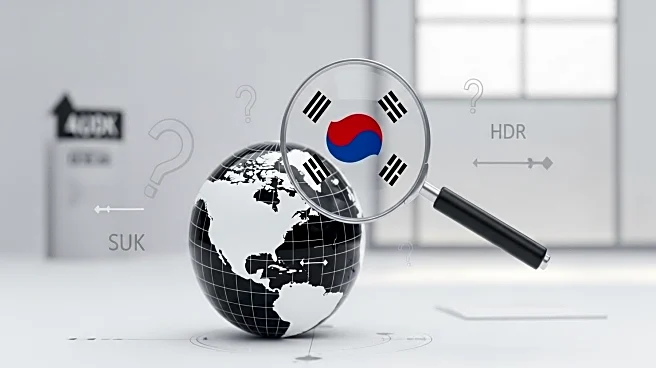What's Happening?
South Korean workers were reportedly sent to the United States on questionable visa documents, despite warnings about stricter U.S. immigration enforcement. This development comes in the wake of a recent raid on a Hyundai site. South Korean companies have faced challenges in obtaining short-term work visas for specialists needed in their U.S. high-tech plants. As a result, they have relied on looser interpretations of visa rules under previous U.S. administrations. However, changes in policy during President Trump's second term have led to some workers being denied entry under visa statuses that do not fully permit work. The situation highlights ongoing difficulties in securing appropriate work visas, such as the H-1B, for skilled workers in the battery and tech industries.
Why It's Important?
The visa issues faced by South Korean companies underscore broader challenges in the U.S. immigration system, particularly for industries reliant on specialized foreign labor. The inability to secure proper work visas can disrupt operations and delay projects, impacting economic productivity and competitiveness. Companies like Hyundai, which are investing heavily in U.S. manufacturing, may face operational setbacks, affecting their ability to meet production targets. This situation also highlights the tension between immigration enforcement and the need for skilled labor in the U.S. economy, potentially influencing future policy discussions and reforms.
What's Next?
The recent raid and visa denials may prompt South Korean companies to seek alternative solutions, such as increasing local hiring or lobbying for visa policy changes. U.S. policymakers might face pressure to address the balance between immigration enforcement and the needs of industries dependent on foreign expertise. The outcome could influence future U.S.-South Korea business relations and impact the broader discourse on immigration reform.








